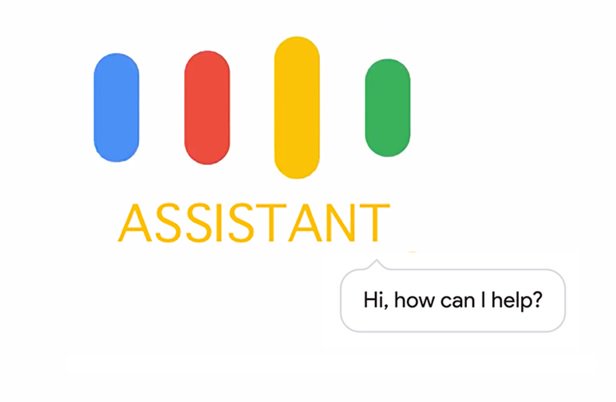The future of voice search
Written by
Editorial TeamPublished on

Say hello to Dustin Coates, a Voice Search Go-to-Market Lead at Algolia, who shares his insights in our exclusive sneak peek before his presentation about the future of voice search during E-commerce Berlin Expo. “Ok Google, read the interview”!

You are a Voice Search Go-to-Market Lead at Algolia, a search API company. What does your job entail on a daily basis?
Algolia’s a search engine provider, which means that if you’ve ever searched for something on Lacoste, Birchbox, or Bringmeister, you’ve actually searched through us.
My day is focused on taking that search engine functionality we already have and making sure that we are building the right functionality to support voice, and that we’re speaking about it in the right way to the right people.
No two days are the same, but a recent day found me on calls with our customers and our success team, learning about what those customers want in voice search, and educating them about what we can do. Voice is such a new thing for many businesses that they feel they should do something, but they don’t know what.
In the afternoon, I held office hours with some of our staff, as the company is excited about voice search and wants to learn as much as they can about it. Finally, I wrapped up the day working on my presentation for E-commerce Berlin Expo!
You also are the author of Voice Applications for Alexa and Google Assistant, where you write about designing voice-based apps from scratch. Can anyone do it, or do you need to have a particular skill-set even to start?

Anyone can design voice-based apps! The skills are those that everyone has, or can develop: an empathy for the users, an understanding of how people speak, and a desire to make people’s lives easier through voice interactions.
That’s not to say that it’s unskilled work. Creating a proper conversation between computer and human can be difficult, especially when things go wrong. And, to build a fully-fledged voice app, code comes into play.
Nonetheless, it’s something that anyone can start with today, and build their skills as they continue.
Is Facebook going to develop Voice Assistant, or just focus on Voice Search? I have read about Aloha on VUX.world blog.

This is a tough one. Facebook already has a conversational platform in Messenger, and bringing Messenger to voice makes sense. At the same time, Facebook is very, very late in voice.
If they released something today, they would be far behind Google, Amazon, Apple, and multiple Chinese companies. This is probably why you saw Portal ship with Alexa rather than a voice-driven Messenger.
I would be shocked if Facebook weren’t working on a voice assistant, but I also wouldn’t be surprised if they never released it to the public.
Let’s take a closer look at your E-commerce Berlin Expo entry. The title of your presentation is “50% by 2020: Preparing for the Future with Voice Search”. What do these mysterious 50% stand for?
There’s this stat that is in seemingly every presentation or blog post about voice: “50% of searches will be through voice in 2020.” I talk in my presentation about whether that exact value is true, but I think the fact that the stat is oft-repeated indicates how quickly voice has taken over.
PWC for example saw that 40% of people would prefer to search through voice than a keyboard. That’s incredible! People increasingly expect that websites and apps have voice search ready for them.
Where can you see voice search in 2030? Are we even still going to search with our fingertips?
I expect voice search in 2030 to be much more accurate and much more prescient. Speech to text is going to become increasingly accurate, and as that happens people will want to use voice even more.
How many people really enjoy typing? Is there anyone who says, “I wish my Echo had a keyboard.” Voice search will also become more prescient.
As devices learn more about us, and are better able to make connections, voice search will be able to more closely match you to what you want, and sometimes before you even ask for it.
Still, I think there will be a place for keyboard-based searching. You don’t want to say “Alexa, what is this rash?” in the middle of an open office or “Hey Google, find engagement rings for two months of my salary” in front of your girlfriend.
Ok, last question! Alexa, Google Assistant or… Siri? 🙂 Can we, or should we, compare them?

Well, definitely not Siri. Personally, I use both Alexa and Google Assistant. Sometimes it depends on the functionality, sometimes it depends on which ecosystem I’m ensnared (for example, all of my music is through Google Play), and sometimes it just depends on the mood.
I’m 100% in favor of comparing the assistants, because if you’re going to have one in your home you want the best one. Plus, when we compare, we push them to get better. It’s great for everyone.
Dustin is one of the speakers during E-commerce Berlin Expo 2019. If you want to see his presentation live, register here for free

Dustin Coates– is the Voice Search Go-to-Market Lead at Algolia, a search API company. He is also a developer who has written the book Voice Applications for Alexa and Google Assistant (Manning Publications) and writes for voice developers on his blog, Talking to Computers. Additionally, he’s a Google Developers Expert for Google Assistant, and co-host of the VUX World podcast where he helps interview leading figures in the voice industry.


